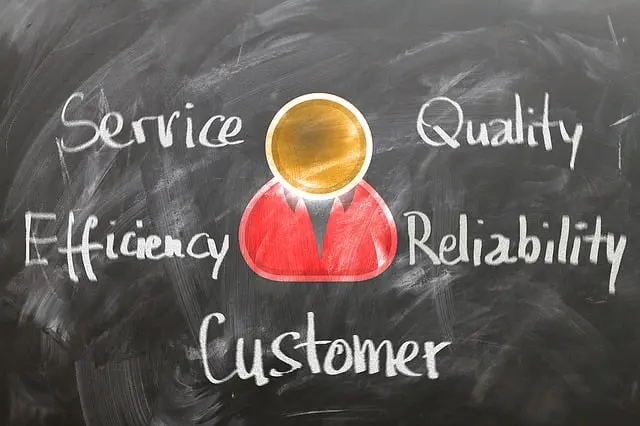Streamlining Sales Processes
One of the primary advantages of CRM software for small businesses is its ability to streamline sales processes. By centralizing customer information, CRM systems provide sales teams with a comprehensive view of their customers' history and preferences. This enables more personalized and effective communication, which can lead to increased sales and improved customer loyalty. Sales automation features, such as lead tracking, follow-up reminders, and pipeline management, help sales teams stay organized and focused, ensuring that no potential sales opportunities are missed. These efficiencies can have a significant impact on a small business’s bottom line.
Enhancing Marketing Efforts
CRM software also plays a crucial role in enhancing marketing efforts for small businesses. With CRM tools, businesses can segment their customer base and tailor marketing campaigns to specific groups, resulting in more targeted and effective outreach. The ability to track customer interactions and analyze data helps businesses understand which marketing strategies are working and which need improvement. Additionally, CRM systems often integrate with email marketing platforms and social media, allowing businesses to manage all their marketing efforts from a single interface. This integration leads to more cohesive and efficient marketing campaigns.
Improving Customer Service
Customer service is a critical aspect of any business, and CRM software can greatly improve the quality of customer support provided by small businesses. CRM systems store detailed information about each customer, including past interactions, purchase history, and preferences. This information allows customer service representatives to provide faster and more personalized assistance. Features such as ticketing systems, automated responses, and knowledge bases streamline the support process and ensure that customer inquiries are handled promptly and effectively. Improved customer service leads to higher customer satisfaction and loyalty, which are vital for a small business’s success.
Facilitating Team Collaboration
For small businesses, effective team collaboration is essential for operational efficiency and success. CRM software facilitates collaboration by providing a centralized platform where team members can access and share customer information. Features such as task assignments, shared calendars, and internal messaging systems help team members stay aligned and work together more efficiently. By keeping everyone on the same page, CRM systems reduce miscommunications and ensure that all team members have the information they need to perform their roles effectively. This collaborative environment fosters productivity and can lead to better business outcomes.
Data-Driven Decision Making
Making informed decisions is crucial for the growth and success of any small business. CRM software provides valuable insights through data analysis and reporting tools. By tracking key performance indicators (KPIs) such as sales metrics, customer retention rates, and marketing campaign effectiveness, businesses can identify trends and make data-driven decisions. These insights help small businesses allocate resources more effectively, optimize processes, and identify opportunities for growth. The ability to make strategic decisions based on accurate data is a significant advantage that CRM software offers to small businesses.
Scalability and Growth
As small businesses grow, their needs and requirements evolve. CRM software is designed to be scalable, allowing businesses to expand their usage as they grow. Whether it’s adding more users, integrating additional features, or handling increased data volumes, CRM systems can accommodate a growing business's needs. This scalability ensures that the CRM system remains a valuable tool throughout the business’s growth journey. By providing a solid foundation for managing customer relationships and business processes, CRM software supports small businesses in achieving sustainable growth.
Cost-Effectiveness
For small businesses with limited budgets, cost-effectiveness is a key consideration when investing in new tools and technologies. Many CRM software solutions are designed with small businesses in mind, offering affordable pricing plans and flexible subscription models. Additionally, the efficiencies gained through CRM software can lead to cost savings in other areas, such as reduced administrative overhead and improved sales effectiveness. By choosing a CRM system that fits their budget and needs, small businesses can achieve a high return on investment and enhance their overall profitability.
Ease of Implementation
Another important factor for small businesses is the ease of implementing new software. Many CRM solutions offer user-friendly interfaces and intuitive features, making them accessible even for those with limited technical expertise. Additionally, many vendors provide robust support and training resources to help businesses get up and running quickly. Cloud-based CRM systems, in particular, require minimal IT infrastructure and can be accessed from anywhere, further simplifying the implementation process. This ease of use ensures that small businesses can start benefiting from their CRM software without significant disruption or delay.
Competitive Advantage
In a crowded marketplace, small businesses need every advantage they can get to stand out from the competition. Implementing a CRM system can provide a significant competitive edge by enabling businesses to deliver superior customer experiences. With CRM software, small businesses can respond more quickly to customer inquiries, provide personalized service, and anticipate customer needs. This level of responsiveness and attention to detail can differentiate a business from its competitors and build a loyal customer base. Ultimately, CRM software empowers small businesses to compete more effectively and achieve long-term success.
Conclusion
CRM software is a powerful tool that offers numerous benefits to small businesses. From streamlining sales processes and enhancing marketing efforts to improving customer service and facilitating team collaboration, CRM systems provide the capabilities needed to manage and grow a business effectively. The data-driven insights, scalability, cost-effectiveness, and ease of implementation make CRM software an invaluable asset for small businesses looking to enhance their customer relationships and achieve sustainable growth. By investing in a CRM system, small businesses can position themselves for success in today’s competitive business environment.

